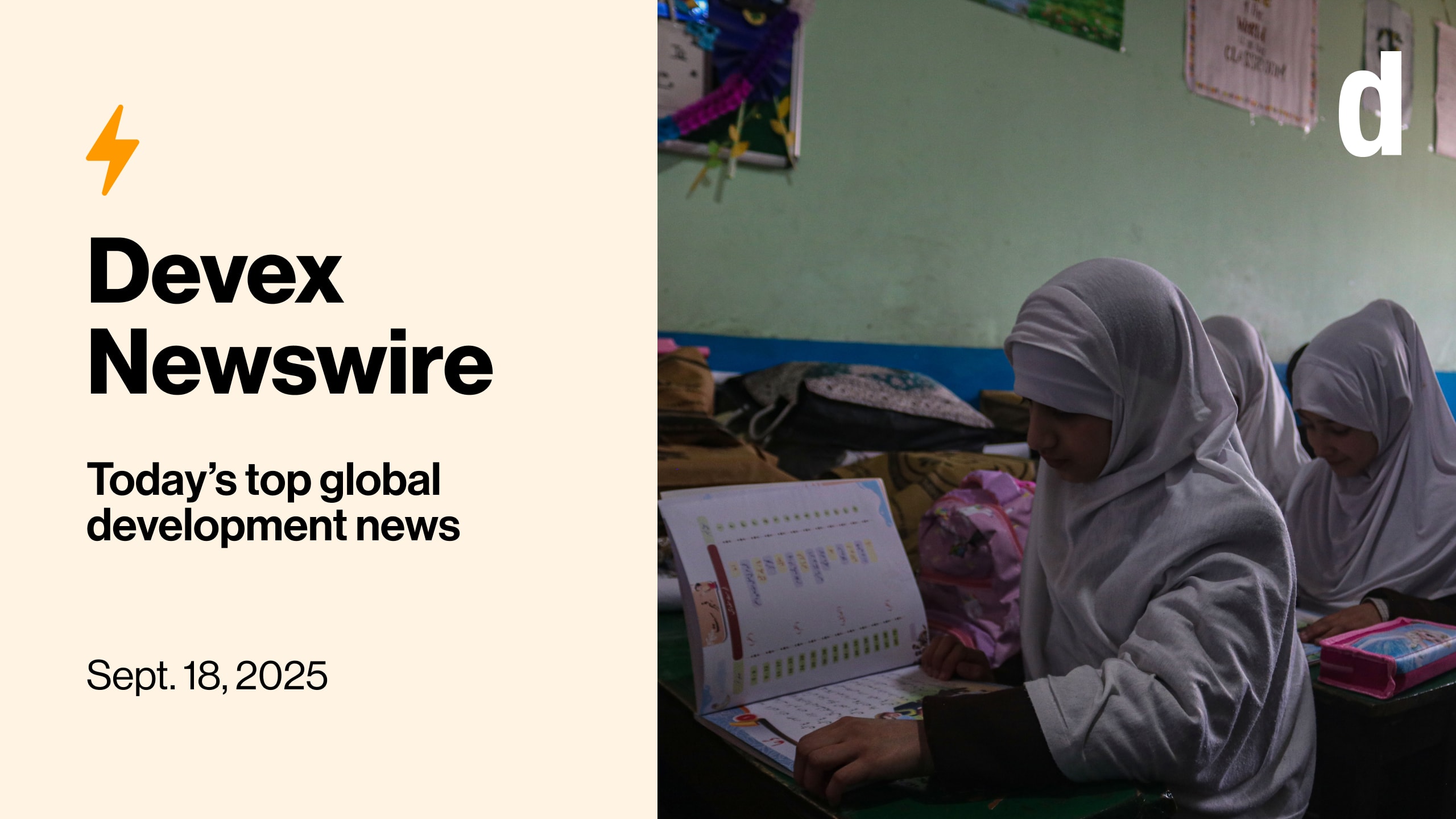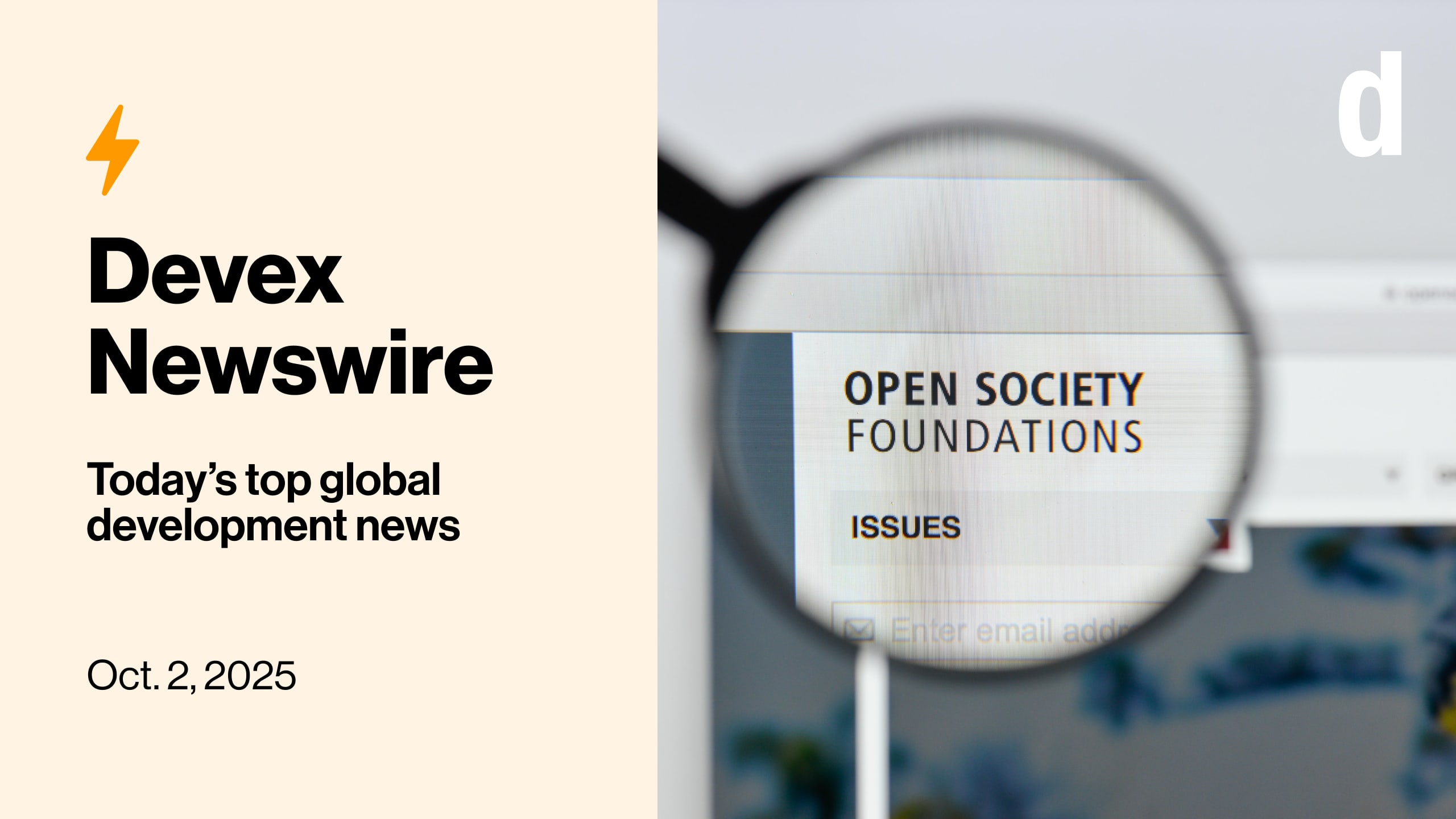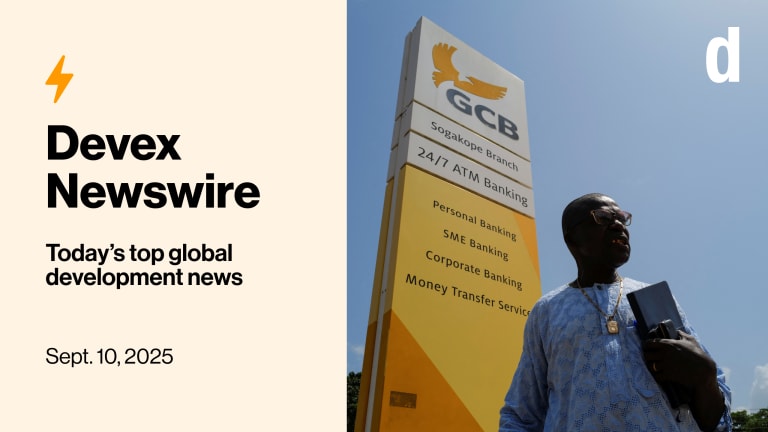
This is a preview of Newswire
Sign up to this newsletter for an inside look at the biggest stories in global development, in your inbox daily.
“Like being tapped by a fairy godmother’s magic wand.” That’s how Ruth Levine, head of IDinsight, described learning that her organization was one of 286 chosen by billionaire philanthropist MacKenzie Scott to receive the latest $2.7 billion tranche of her fortune.
+ Today: Join WHO’s chief scientist, Dr. Soumya Swaminathan, and my colleague Amruta Byatnal in a conversation about vaccines, variants, and the future of the pandemic response. Save your spot for 9 a.m. ET (3 p.m. CET) start. Presented by GCI Health.
Just weeks after COP 26 President Alok Sharma visited Indonesia and urged the country to be more ambitious on climate change, the U.K. government is pulling the plug on a forest conservation program that was supposed to run for two more years, Will Worley reports.
• The Green Economic Growth program in Indonesia’s Papua region focused on providing sustainable livelihoods as a means of reducing deforestation.
• “The decision of the UK Government and the manner of the closing means that no sensible exit process can be managed to ensure sustainability of the project results going forward,” wrote Patrick Abbot, who directs the company that runs the project.
• The decision underscores criticism that the U.K. government’s deep and wide-ranging foreign aid cuts are undercutting its rhetoric on climate change leadership ahead of the critical international climate conference in Glasgow later this year.
Exclusive: UK cancels 'highly effective' green program in Indonesia
Breaking the mold
In a Medium post Tuesday, MacKenzie Scott took aim at the conundrum at the center of her philanthropy — how to “give away a fortune that was enabled by systems in need of change.” Announcing the 286 recipients of her $2.7 billion donation, Scott wrote that, “putting large donors at the center of stories on social progress is a distortion of their role,” and she renewed a call for unrestricted grantmaking.
So where did the money actually go? Stephanie Beasley has more on how the list of grantees came together, and what it was like for those who found themselves on it.
Devex Pro: Global nonprofits among grantees in MacKenzie Scott's $2.7B donation
Enlightened self-interest
“A two track pandemic means a two track economic recovery, and that holds the global economy back, to the detriment of everybody.”
— Kristalina Georgieva, managing director, IMFThe International Monetary Fund has secured about a third of the $35 billion in grants from public, private, and multilateral donors that it called for last month as part of a sweeping “Proposal to End the Covid-19 Pandemic,” Shabtai Gold reports.
Read: IMF head 'optimistic' about donation pace for $50B COVID-19 proposal
Not for profit
End Water Poverty and other civil society groups are calling for public authorities to make listing “water on the commodity market illegal,” Rebecca Root reports.
• Their protest was sparked by the launch of the Nasdaq Veles California Water Index futures in December by CME Group — an American global markets company and financial derivatives exchange.
• Futures contracts for water can help combat price volatility and guard against droughts and other shocks, but they also create incentives for speculators to try and drive up prices.
• “In the context of this widespread water crisis, quality water is more and more sought-after yet increasingly rare: it is an ideal financial investment for speculators, because everyone needs it to live and nothing can replace it,” reads a petition to stop the financialization of water, which has gained support from 560 organizations.
• A major worry is that this won’t end in California. “The moment it takes strong ground in the U.S. it could be exported to other countries very quickly,” said Al-Hassan Adam, international coordinator at End Water Poverty. “We’re not going to allow this to take root in global markets.”
Read: Civil society protests water's emergence on the stock exchange
Agree to disagree
The EU is locked in a political power struggle with … its own member states. Vince Chadwick offers this clarifying look inside a squabble over the “Post-Cotonou agreement” which is meant to structure a partnership between the EU and 79 African, Caribbean, and Pacific countries.
EU member states want the agreement to require ratification in their own parliaments, while the European Commission wants to get on with things and conclude the deal itself.
Read: EU institutions in power struggle over Africa, Caribbean, Pacific pact
In other news
Human Rights Watch has accused UNHCR of collecting data on Rohingya people and sharing it with the Bangladeshi government, exposing hundreds of thousands to potential forced repatriation. [The Independent]
Five polio workers were killed Tuesday in Jalalabad, temporarily halting an ongoing vaccination drive in the eastern part of Afghanistan. [The Telegraph]
A spike in gang violence in Haiti's capital has displaced some 8,500 women and children, according to UNICEF. [The Guardian]
Sign up to Newswire for an inside look at the biggest stories in global development.








